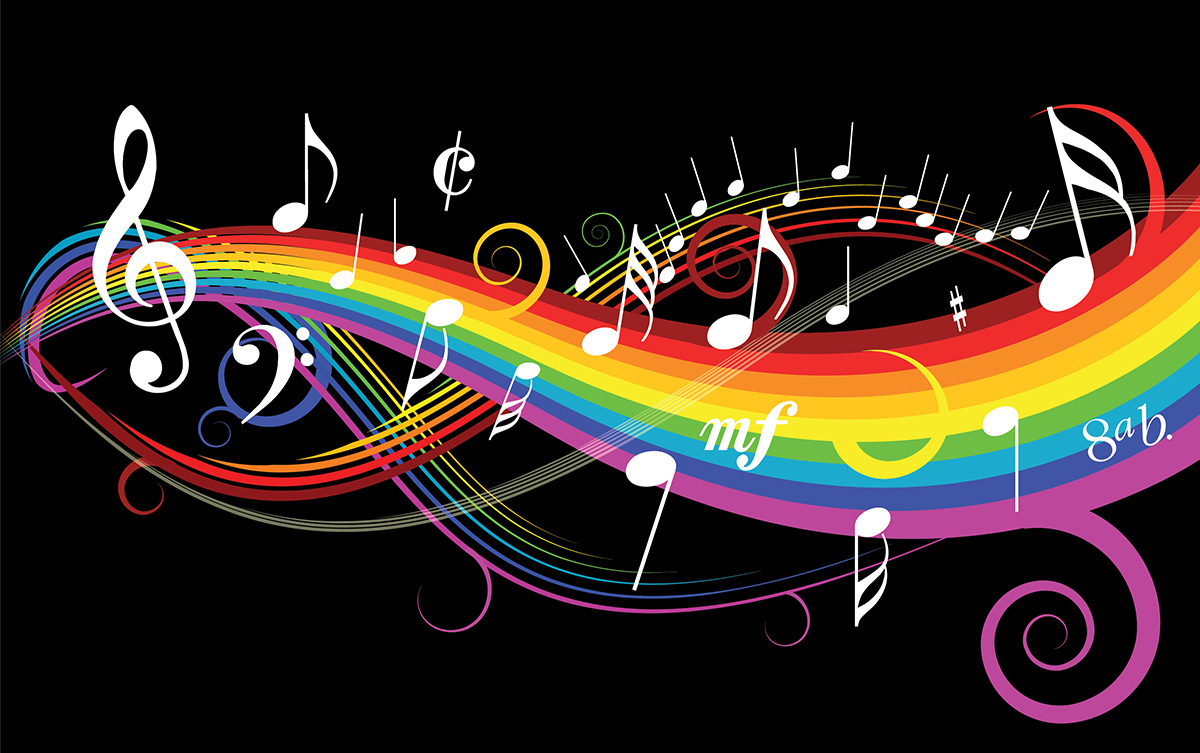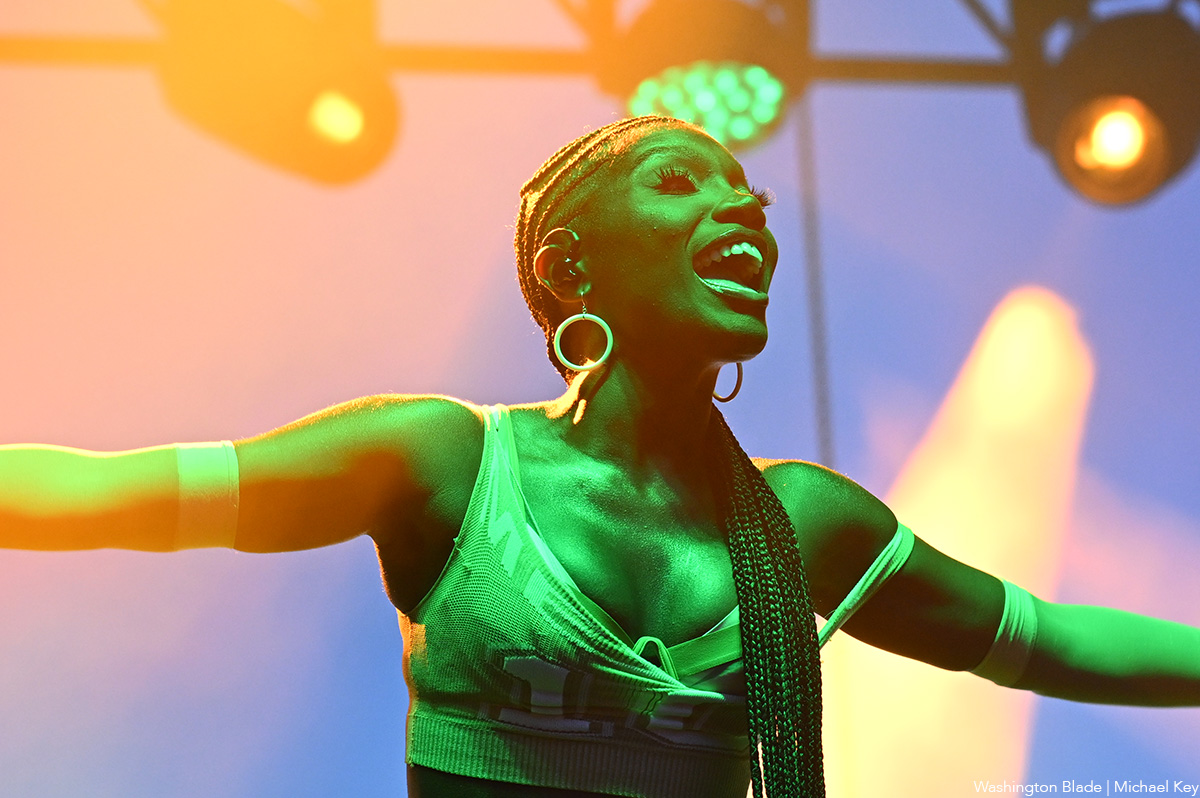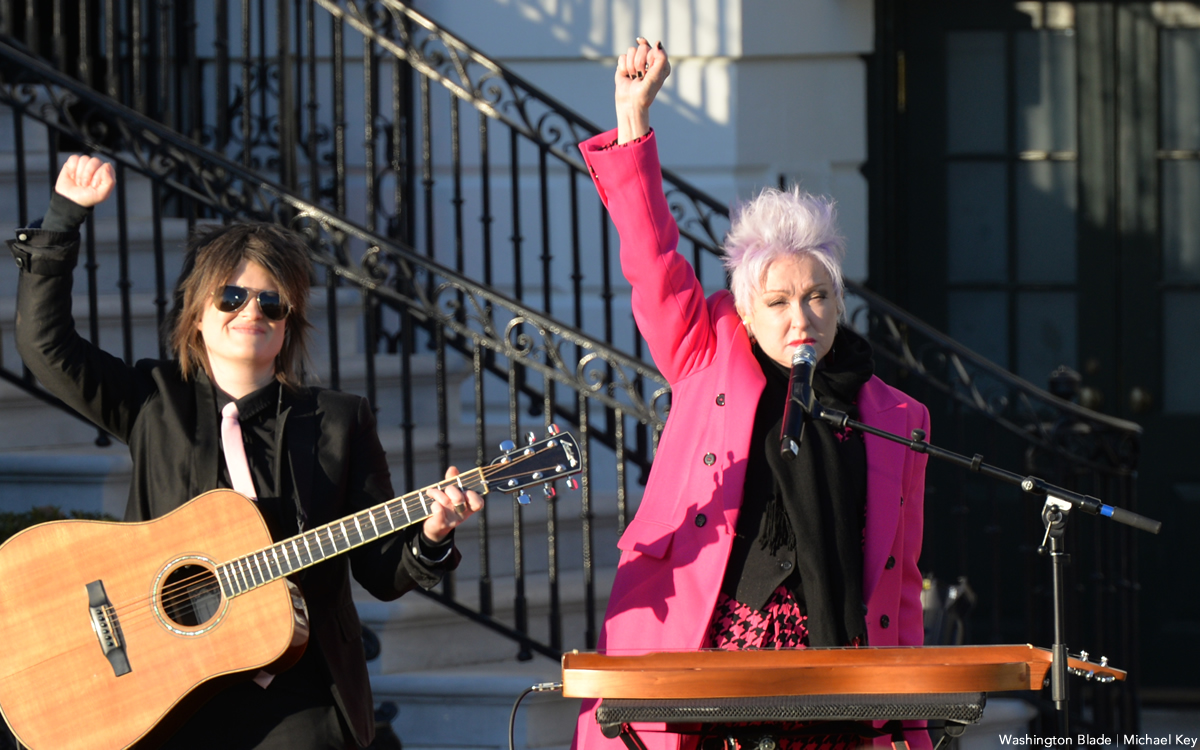Music & Concerts
Out of the country closet
Chely Wright on how her faith led her to come out

Last month, for the first time in the history of country music, an established country singer came out. In the May 17 issue of People magazine, Chely Wright discussed how she knew she was gay by age 9, but thought she had to hide it to succeed in music — living a lie that drove her to consider suicide in 2006.
Wright had her biggest hit in 1999 with “Single White Female,” which went to No. 1; made People’s list of Most Beautiful people in 2001, and dated fellow country singer Brad Paisley. In her People interview, she described how she decided to come out when making her new album, “Lifted Off the Ground.”
Wright also has a new memoir, “Like Me,” and has spent the days since the People story hit newsstands in a whirlwind of interviews, from Oprah to Larry King,
She performed at the Gay & Lesbian Alliance Against Defamation Media Awards on June 5, and is scheduled to serve as grand marshal of Michigan Pride on June 12 and headline Capital Pride in Washington, D.C. on June 13.
She is also headlining Chicago Pride and recently joined the board of Faith in America, a nonprofit group that works to end “religion-based bigotry” against LGBT people.
“Chely’s decision is creating an opportunity for the voices of acceptance and equality to be heard and history has shown that those voices reflect the true hearts and minds of most Americans,” says FIA founder Mitchell Gold.
In an interview, Wright talked about growing up closeted in rural Kansas and her assertion that it’s possible to be gay and a Christian.
“I knew that I was different, but from the minute that I realized what the difference in me was, I went into hiding. It was an undefined prison without bars. I thought I had a birth defect or that I was possessed by the Devil,” she said.
“I spun my mind around all day long trying to figure out what was wrong with me. Then, I had that preacher standing there telling me what was wrong with me and that I was going to hell. I was being told that I would never fit in anywhere.”
She added, “The most compelling things that I have been told by the LGBT community is, ‘Thank you for coming out and for talking about your relationship with God.’ My faith defines me more than anything else.”
The country music industry is considered conservative, so many LGBT advocates have praised Wright for bravery in coming out.
“It was a result of my finally submitting to God. In my new book, ‘Like Me,’ I detail the tipping point for me was getting on my knees the day after I had a gun in my mouth about to kill myself. I prayed, ‘Dear God, give me a moment’s peace. We’ve been doin’ it my way for 36 years. Now, I’m ready to do it your way. Show me the way.’
“His answer was, ‘OK, You’re going to stand up and tell your truth.’ … Not only do we damage ourselves when we hide, but we wreak havoc on those around us. I detached from my family and it confused them. I tried to have relationships with men that hurt them. It’s a no-win situation. People get hurt when you lie.”
She continued: “When we try to be in a relationship that we know we’re not supposed to be in, whether it’s having sex or just going to the movies and holding hands with a man when we know we’d rather be there holding hands with a woman, that’s a lie. It’s wrong.
“I just got a letter from a man who came through an autograph line. He said, ‘I’m a gay man and I’ve been married to a woman for 15 years and I’ve ruined her life. I haven’t made love to her in years. She’s been eating herself into oblivion and now weighs over 300 pounds, she’s depressed, and she feels ugly. She’s a beautiful woman trapped inside of a fat body because of what I’ve been doing to her. Your book has made me realize what I’ve done to her. This isn’t going to be easy, but I am going to come out to her.’”
Washington Blade: You made a statement when you were on Oprah where you were talking about the gay children in this country who are hearing churches preaching that they are damaged goods and that their parents are echoing that in their homes.
Do you think that if the parents and churches would just let these children know that they are unconditionally loved and accepted, they wouldn’t grow up thinking that they must attempt a “normal” life where innocent people are dragged into their attempts to “be normal” like this poor man and his family?
Chely Wright: The parents are quite as culpable as the church. When parents take a child to a church and say, “This is my baby, help me raise them,” they’re well-intentioned. I don’t want to point fingers but I do want to identify where we are going wrong. We need to start looking at churches where kids are hearing this message of “You are broken.” This whole “Love the sinner, hate the sin” — I’m so tired of that. That’s a problem for me. Isn’t that so empty?
Blade: Yes, because a gay person rarely, if ever, sees any “love” from someone who uses that phrase.
Wright: Sin is decision-making. I don’t have a choice to love a man. It’s a sin for me to try to love a man. I will mess a man up. I will mess me up and I will leave a wake of carnage behind me.
Blade: Do you get the feeling that country music was ready for your coming out?
Wright: Not entirely. People who are supportive are so excited that there is someone who has finally stepped out. That’s been so amazing that people are posting positive comments on my Facebook page.
On the other side, people really hate quietly. Let that not go unnoticed. Some of the most damaging hate in history has been done privately behind closed doors or with hoods over their heads.
For the first time in 10 years, my charity concert, “Reading, Writing and Rhythm,” [on June 8] isn’t sold out. Only about half the tickets have been sold. It could be that because Nashville had the flood, people might just be all charitied-out.
I can tell you this, though: We’ve been begging the other acts to please put the event on their social networking sites. That’s never been a problem in the past to get them to help us advertise it to their fans. Other than Rodney Crowell, SheDaisy and Jann Arden, nobody else is telling their fans that they are performing at my event.
Blade: That’s eye-opening.
Wright: Isn’t it? I think that they don’t want to cancel because what would it say about them if they canceled? So they just want to quietly slip in, sing their few songs and get out of there.
Blade: Next week is Fan Fair in Nashville. [The official CMA Music Festival is June 10-13.] Are you expecting to get a better feel for the reaction from country fans when you’re there?
Wright: Nashville whispered about me for years. I didn’t come out to confirm it to the people in Nashville who had heard that I was gay. I came out for the 14-year-old kid sitting in church being told, “Don’t be that, because you’re doomed to a life of ruination. You’re not going to be a good human being if you’re going to be that.”
Blade: When you and your dad recently appeared on Oprah, your dad spoke of his immediate change of heart when you came out to him.
Wright: When I told my dad that I was gay and he heard that word “gay” next to his daughter’s face, name and heart, it changed that word for him. My dad was more effective in moving a million small mountains on the Oprah show than I was.
Oprah asked him, “Stan, what changed? You went from thinking that gay meant sinful, perverted and sick to being accepting the moment Chely said she was gay. What changed?”
He looked at Oprah and he said, “I know her heart.”
Music & Concerts
Washington chorale kicks off Christmas with vibrant program
‘Thine Own Sweet Light’ concerts planned

The full Washington Master Chorale will return for its annual holiday concert tradition with “Thine Own Sweet Light” on Friday, Dec. 19 and Sunday, Dec. 21 at St. Ann’s Catholic Church (D.C.) and Church of the Epiphany (D.C.).
The concert will feature the rich sounds of the 50-voice, a cappella chorus performing lush, seasonal choral music inspired by the theme of light. Highlights include Edvard Grieg’s “Ave Maris Stella,” Eric Whitacre’s “Lux Aurumque,” and Christopher Hoh’s “Holy, Holy, Holy is the Lord God of Hosts.” The program will also present a new work by Barcelona composer Josep Ollé i Sabaté, along with charming holiday folk songs and seasonal favorites.
For more details, visit the Washington Master Chorale website.
Music & Concerts
Queer mega stars (and allies) ready to take D.C. stages this fall
Watch LGBTQ icons light up stages across the DMV as they sing, dance, and drag their way through spectacular shows.

One of the best ways to welcome fall is by catching LGBTQ performers (and their allies) lighting up some of the D.C. area’s biggest stages. From country and pop to drag and rock, the season is packed with shows you won’t want to miss.
Maren Morris – The country, rock, and pop diva—known for hits like “The Bones” and for standing up against Nashville’s anti-LGBTQ voices—takes the stage at Wolf Trap (1551 Trap Rd, Vienna, Va.) on Friday, Sept. 12 at 8 p.m. Tickets start at $64.
RuPaul – The mother of modern drag and host of “RuPaul’s Drag Race” will spin a DJ set at Echostage (2135 Queens Chapel Rd NE) in Northeast D.C. on Sept. 20. Before RuPaul swaps wigs for headphones, Trade and Number 9 owner Ed Bailey will warm up the decks. For tickets and details visit echostage.com.
Conan Gray – The queer pop prince, celebrated for his Gen Z anthems like “Heather” and “Maniac,” brings his Wishbone Pajama Show to EagleBank Arena in Fairfax, VA, (4500 Patriot Cir) on Sept. 20 at 8 p.m. Tickets start at $113. For more info visit shop.conangray.com/pages/tour.
All Things Go Music Festival – With a lineup that includes Noah Kahan, Lucy Dacus, Kesha, Clairo, Doechii, and more, the beloved LGBTQ-friendly festival takes over Merriweather Post Pavilion (10475 Little Patuxent Pkwy, Columbia, Md.) Sept. 26–28. For tickets and details visit allthingsgofestival.com.
BERTHA: Grateful Drag – This unique tribute brings drag artistry and the sounds of the Grateful Dead to The Atlantis (2047 9th St NW) on Sept. 27. Tickets start at $47 at theatlantis.com.
Peach PRC – Rising Australian pop star and out lesbian, whose confessional tracks like “Perfect for You” and “Forever Drunk” have made her a queer TikTok darling, performs at The Atlantis on Sept. 29 at 6:30 p.m. The show is general admission only. Additional details are on theatlantis.com.
Addison Rae – The TikTok star-turned-pop princess, who’s crossed over into music with glossy hits like “Diet Pepsi” brings her sold out show to The Anthem (901 Wharf St., S.W.) on Sept. 30. Tickets are sold out, but resale options start around $80. For more info visit theanthemdc.com.
The Rocky Horror Picture Show 50th Anniversary – Celebrate the cult classic that’s been a queer midnight-movie staple for decades, with Barry Bostwick (a.k.a. Brad Majors) at the Warner Theatre (513 13th St., N.W.) on Oct. 2 at 8 p.m. Tickets start at $41 via Ticketmaster.
Chaka Khan, Patti LaBelle, Gladys Knight & Stephanie Mills – Four legends, one stage. Between Khan’s funk, LaBelle’s soul, Knight’s R&B, and Mills’ powerhouse vocals, this concert at Capital One Arena (601 F St NW) on Oct. 3 at 8 p.m. promises pure diva magic. Tickets start at $103. For more details visit capitalonearena.com.
Lorde – Joined by The Japanese House and Chanel Beads, the Grammy-winning New Zealand singer-songwriter behind “Royals” and “Solar Power” returns to The Anthem on Oct. 4 at 7 p.m. Lorde has long been embraced by queer fans for her dreamy pop and subversive lyrics. For more info visit theanthemdc.com.
Andy Bell (of Erasure) – The British queer rock icon, best known for synth-pop classics like “A Little Respect” and “Chains of Love,” brings his Ten Crowns Tour to the Lincoln Theatre (1215 U St., N.W.) on Friday, Oct. 17 at 8 p.m. Tickets are $90.45.
Doechii – The self-described queer “Swamp Princess”—and WorldPride 2025 headliner—continues her breakout year with the Live from the Swamp Tour at The Anthem on Oct. 21 at 8 p.m. Known for blending rap, R&B, and avant-garde performance art, Doechii is one to watch. Tickets start at $153.
Neon Trees – The out-and-proud Utah rockers behind “Everybody Talks” and “Animal” perform at the Lincoln Theatre on Friday, Oct. 24 at 8 p.m. Lead singer Tyler Glenn, who came out publicly in 2014, has become a strong queer voice in alternative rock. For tickets and info visit impconcerts.com.
Sasha Colby – The “RuPaul’s Drag Race” Season 15 winner strips down on the Stripped II Tour at the Warner Theatre on Nov. 2 at 8 p.m. Tickets available now on Ticketmaster.
Lola Young – The bisexual indie-pop sensation, whose raw songwriting has earned her millions of TikTok fans and multiple chart soaring hits visits The Anthem on Nov. 9 at 8 p.m. Tickets are still available.
Opera Lafayette
Featuring Mary Elizabeth Williams as Dido
+ Elijah McCormack, Chelsea Helm
Oct. 16, 7:30 p.m.
Sixth & I
PostClassical Ensemble
The Pale Blue Do: A Musical Voyage Inspired By Nature
Featuring National Geographic’s Enric Sala, Guest Curator
Wednesday, November 19, 7:30 p.m.
Terrace Theater
Washington Concert Opera
Starring Kate Lindsey, Theo Hoffman, John Moore, and Fran Daniel Laucerica
Nov. 23, 6 p.m.
Lisner Auditorium
Washington Master Chorale
An intimate a capella concert taking place in an architectural jewel, featuring cherished choral gems from Anglican and Catholic tradition and early American hymns. The concert will also present the world premiere of Christopher Hoh’s Holy, Holy, Holy is the Lord God of Hosts, and hymn singing featuring Robert Church, organist and choirmaster at St David’s.
Oct. 18, 7:30 p.m.
October 19, 5 p.m.
St. David’s Episcopal Church
Music & Concerts
Cyndi Lauper ready to have fun in Virginia
Superstar to bring final leg of farewell tour to Jiffy Lube Live

Superstar Cyndi Lauper will bring the final leg of her farewell tour “Girls Just Wanna Have Fun” to Bristow, Va., on Thursday, July 24 at Jiffy Lube Live.
Lauper’s international Farewell Tour – her first major headlining run in a decade – kicked off in North America last October, and included her first time ever headlining (and selling out) Madison Square Garden. Lauper’s performances have earned raves from the New York Times, Rolling Stone, Billboard, and many more, and surprise guests have included Chaka Khan, Sam Smith, and Hayley Williams. The tour just visited the U.K. and Europe, and will head to Australia and Japan in April.
Tickets are available on Live Nation’s website.
-

 National5 days ago
National5 days agoTrump falsely links trans people to terrorism
-

 Virginia5 days ago
Virginia5 days agoFellow lawmakers praise Adam Ebbin after Va. Senate farewell address
-

 National5 days ago
National5 days agoLGBTQ activists mourn the Rev. Jesse Jackson
-

 Massachusetts4 days ago
Massachusetts4 days agoEXCLUSIVE: Markey says transgender rights fight is ‘next frontier’














